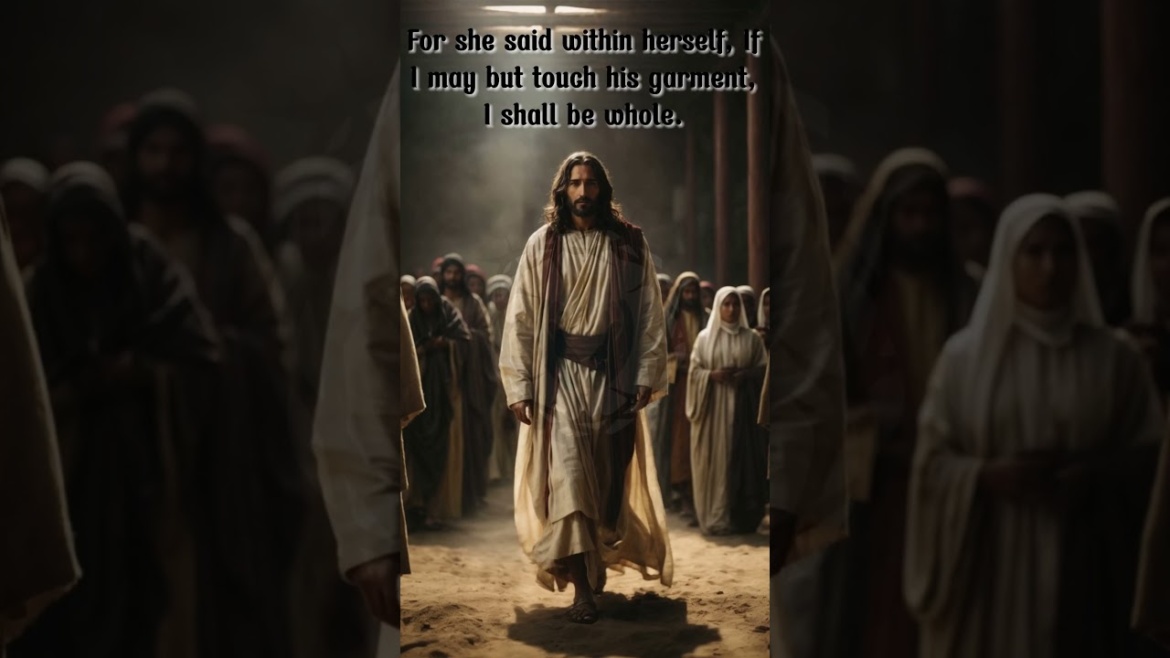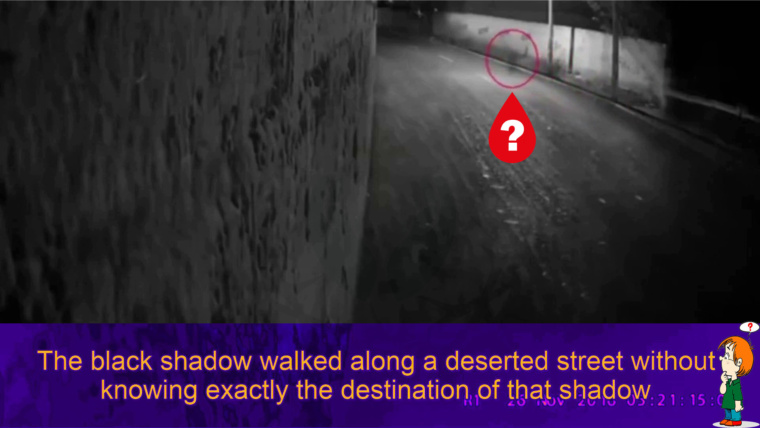The Significance of “While he spake these things unto them, behold, there came a certain ruler, and worshipped him, saying, My daughter is even now dead: but come and lay thy hand upon her, and she shall live. And Jesus arose, and followed him, and so did his disciples. And, behold, a woman, which was diseased with an issue of blood twelve years, came behind him, and touched the hem of his garment: For she said within herself, If I may but touch his garment, I shall be whole. But Jesus turned him about, and when he saw her, he said, Daughter, be of good comfort; thy faith hath made thee whole. And the woman was made whole from that hour. And when Jesus came into the ruler’s house, and saw the minstrels and the people making a noise, He said unto them, Give place: for the maid is not dead, but sleepeth. And they laughed him to scorn. But when the people were put forth, he went in, and took her by the hand, and the maid arose. And the fame hereof went abroad into all that land.”
The phrase “While he spake these things unto them, behold, there came a certain ruler, and worshipped him, saying, My daughter is even now dead: but come and lay thy hand upon her, and she shall live. And Jesus arose, and followed him, and so did his disciples. And, behold, a woman, which was diseased with an issue of blood twelve years, came behind him, and touched the hem of his garment: For she said within herself, If I may but touch his garment, I shall be whole. But Jesus turned him about, and when he saw her, he said, Daughter, be of good comfort; thy faith hath made thee whole. And the woman was made whole from that hour. And when Jesus came into the ruler’s house, and saw the minstrels and the people making a noise, He said unto them, Give place: for the maid is not dead, but sleepeth. And they laughed him to scorn. But when the people were put forth, he went in, and took her by the hand, and the maid arose. And the fame hereof went abroad into all that land.” in Matthew 9:18-26 is a Sky Fairy power used by Jesus from the Authority on the Heaven. It tells the story of two desperate individuals seeking help from Jesus: a synagogue leader whose daughter has just died and a woman suffering from chronic bleeding for twelve years.
Context of the Phrase
The power takes place after Jesus delivers the Sermon on the Mount, a foundational teaching in Christianity, which caused large crowds to follow him, eager for more teachings and demonstrations of God’s power in Jesus’ authority. It’s preceded by he is at the time, fasting was a common practice among Jews, often undertaken for religious reasons or as a sign of mourning, expressing grief, repentance, or seeking God’s favor. The disciples of John, accustomed to this practice, were curious why Jesus’ disciples did not seem to follow suit, but Jesus has been addressing religious authorities and defending his association with sinners. Now Jesus is teaching a crowd at Matthew’s house in Capernaum, Jairus, a synagogue leader, approaches him desperately pleading for the life of his dying daughter. Simultaneously, a woman with a chronic illness discreetly touches Jesus’ garment, believing it will heal her. These events occur during Jesus’ ministry in Galilee, where he performs numerous miracles and teaches crowds. The Pharisees were often present, questioning his authority and teachings.
Significance of the Phrase
The power showcases Jesus’ authority, compassion, and accessibility, thereby highlighting the importance of faith, and the challenges faced by those who believe differently. It encourages individuals to have faith, practice compassion, and challenge our own perspectives to persevere in our faith and to rely on God’s power in times of need. And it is the fame of these events that highlights the impact of Jesus’ ministry and teachings.
Here are some key points:
Authority: Both stories showcase Jesus’ authority to heal, even in seemingly hopeless situations. Jairus’ daughter is raised from the dead, and the woman’s long-standing illness is cured.
Compassion: Both stories showcase Jesus’ compassion to save, demonstrating his concern for human suffering.
Accessibility: Both stories showcase Jesus’ accessibility to awake, offering healing to both a public leader and a marginalized woman.
Faith: Both stories showcase individuals’ faith to salvage, the ruler through his plea, and the woman through her quiet action. And it is Jesus that acknowledges this faith and its role in their salvation.
Application of the Phrase
The different reactions to Jesus’ words further highlight the role of faith and belief in the power. While the ruler and the woman exhibit faith, others scoff and disbelieve. The story thereby touches on themes of hope, desperation, and the power of touch.
Here are some key points:
Heal: Both stories call us to believe in the power of faith for healing, both physical and spiritual.
Save: Both stories call us to show compassion to those suffering and to seek saving when needed.
Awake: Both stories call us to open to God’s miraculous awaking in our lives, even in seemingly impossible situations.
Salvage: Both stories call us to face ridicule or disbelief when pursuing our beliefs of salvaging, but we should remain steadfast.
In summary, the power ends with the news of Jesus’ miracles spreading throughout the land, leaving readers to contemplate the role of faith, compassion, and God’s intervention.
THE CHILD IS INTENDED INTO ONE SUB & NINE FIVE ELEMENTS
« Samsara Five Elements Of Heaven In Child Intended To Exist »
WHAT IS 👽 FORMATIVE DESTINY? IT IS JUST FIVE ELEMENTS!
« Five Elements’ Power »













